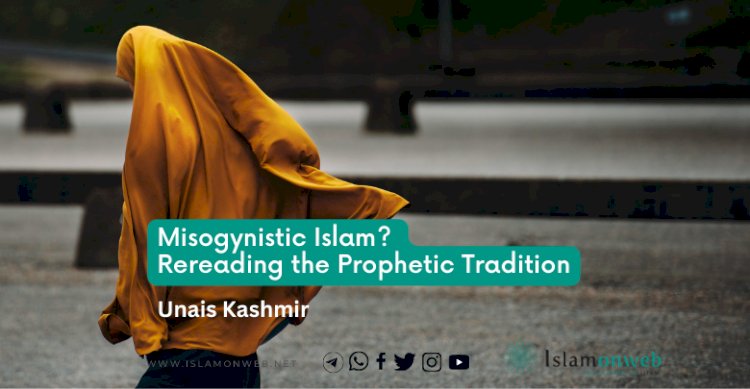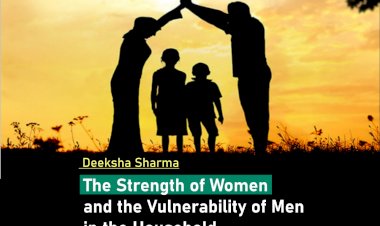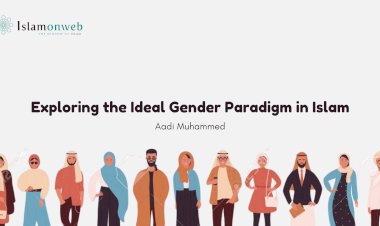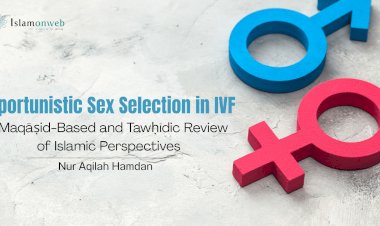Misogynistic Islam? Rereading the Prophetic Tradition
One of the most prevalent arguments critics use to mudsling Islam as misogynistic is that the prophetic hadiths teach that women are less intelligent and less religious. The critics tend to present this hadith through distortions and misinterpretations. So let us examine the criticised hadith first.
The last part of a rather long Hadith that Imam Bukhari and Imam Muslim quoted in their Sahihs, in which the prophet addresses the women, could be translated as this:
"I have never seen anyone less intelligent and less religious (Nāqiṣāt ʿAqlin Wa Dīn) than you who are able to move the hearts of strong-minded men. The women asked, "O Messenger!" What do we lack in intelligence and religion? He said, "Isn't the testimony (shahada) of a woman considered equal to half the testimony of a man?" They said. Yes. The Prophet (ﷺ) said: That is their lack of intelligence. Doesn’t a woman give up prayer and fasting when she menstruates? They said, "Yes." The Prophet (ﷺ) replied: "That is their lack of religion." (Sahih al-Bukhari, Kitabul Haid, 6/304)
The purpose of the reference to women as being less intelligent is explained in the hadith per se, which says that the testimony of a woman is considered equal to half that of a man. Just like, the purpose of reference to them as being less religious is also clarified as that woman gives up prayer and fasting when she menstruates. First, let us examine her "lack" of religion because the same problem exists with reference to her "lack" of intelligence, which means both questions have the same answer.
Unlike how critics tend to interpret the statement "less religious," it means: It is not that women are less pious, unobservant of rituals, or deficient in religious precepts. Instead, it means that women have fewer religious obligations and laws than men, or in relation to religious law and obligation, women are allowed more leeway than men.
As it is, the term "Nuqṣān" is defined as the "reduction" in religious practices caused by biological and natural obstacles women face during childbearing and menstrual periods. It is not her fault to be condemned because she gives up prayer and fasting during the menstrual and childbearing periods as per divine instructions. Furthermore, she will be rewarded for her obedience to God's command. However, in fact, women have fewer prayers per day than men, so it is not linguistically incorrect to say that women are less religious than men. Here, Nuqṣān is used in the sense of "reduction" in contrast to "deficiency."
Similarly, this problem exists with intelligence. The hadith mentioned does not teach that women are irrational, have less understanding, have less ability to think less understanding, or have less ability to think. On the contrary, it is only intended that there are certain situations and areas in which, for conventional and natural reasons, women cannot be as intellectually capable as men. In this light, let us examine the quote "Isn't the testimony of a woman considered equal to half the testimony of a man?" from the hadith.
Assuredly, it is not that all the testimony of a woman takes the place of half the testimony of a man. To know much about the ‘testimony’ Prophet (ﷺ) mentioned, we must go back to the longest verse of the Holy Qur'an, Aayatud-Dayn, which teaches the manners to be observed in borrowing, where Almighty said:
"... But if the one who has the obligation is of limited understanding or weak or unable to dictate himself, then let his guardian dictate in justice. And bring to witness two witnesses from among your men. "And if there are not two men available, then a man and two women from those whom you accept as witnesses—so that if one of the women errs, then the other can remind her." (Qur'an 2:282)
The Holy Qur'an and the debated Hadith refer to testimony in the transactions of borrowing, where the testimony of two women is prescribed instead of the testimony of one man. The Qur'an itself made it clear why such a proposal was made: "If one of them errs, the other may remind her." Highlighting the possibility of a woman's testimony going errant couldn’t be perceived as part of misogyny as it is indicated as such due to some conventional and natural reasons. Here what Shariah did was consider the possibility of forgetfulness and mistakes for women in the fields of transactions comprising finance, business, mathematics, etc., and find a solution by prescribing two women. Unlike the prevalent argument, Islam has never proposed that a woman can be forgetful and wrong in every field or that the testimony of two women is equal to the testimony of a man in every matter. On the contrary, the testimony of women and men has been considered equally on several issues. In the special mentions of Aayat ud-Dayn and the debated hadith over the lower intellectual capacity of women, there are some valid reasons:
Firstly, business, finance, and mathematics are traditionally occupied by men, especially before the advent of the Prophet (ﷺ). For the fact, Islam has made it mandatory for the man to bear the expenses and financial burdens of the family and made its choice for women, even after the advent of the Prophet (ﷺ), men dominated these areas.
Traditionally, the possibility of women's forgetfulness and error in these matters was taken into consideration, as it was an area that women addressed less. To address this, the testimony of two women was considered equal to that of one man. The Prophet (ﷺ) only cited the social fact that women of those days were naturally "less" knowledgeable and intellectually "less" skilled than men in such fields; he did not command that this "lessness" will or should continue.
Essentially, the context of the hadith is also relevant. The Prophet (ﷺ) made this exclusive statement in a private address to a female audience to open the door of self-criticism and self-reflection in them minutes after he made a public sermon on the day of Eid, which refutes the argument of critics that this statement is misogynistic and denigrating, because once the prophet had aimed at this, as per their claim, he would have stated it publicly, but he never did.
Interestingly, cognitive science divides intelligence into two categories: inborn intelligence and acquired intelligence. The hadith here refers to acquired intelligence, which is subject to decrease and increases.
Secondly, although there are scientific criticisms and studies against it, several academic researches and scientific studies indicate that men are more intellectually competent and superior to women due to natural reasons in many subjects such as economics, mathematics, engineering etc.
Finally, it is a fact that many scientific studies have made it clear that women may be less able to reason logically in certain situations. Mental conflicts immediately before menstruation, mental dilemmas in the first days of pregnancy, mental difficulties related to menopause, problems during childbirth, and psychological trauma that causes abortion are many problems that only women face. In addition to physical difficulties in these situations, scientific research shows that women are exposed to many mental problems, such as Bradyphrenia, lack of concentration, and memory loss.
Moreover, recent scientific research underlines that women's intelligence is more emotional than men's, which is more intellectual. An emotional atmosphere during testimony is problematic and could adversely affect it. The mention in the Quran that "if one of them commits a mistake, the other may remind her" is not an insult to women but rather an embrace of her natural weaknesses.
Islam has considered single-female testimony in a multitude of cases. Many scholars have made it clear that if there is no reason to fear such natural problems that may adversely affect the woman's intelligence, memory, or emotional thinking ability, then the testimony of a single woman should be considered in the said field as well. Ibn Taymiyyah said: "If there is anything in the testimonies of women in which they do not fear error in general, then they are not considered as half that of men. Their testimony shall be considered as conclusive one". (Athurukul Hukumiyyah: 128.)
However, the hadith's interest in women being less intelligent and religious is very clear. The Prophet (ﷺ) was merely citing the social fact that women were less knowledgeable and less intellectually skilled than men in areas traditionally not associated with women, such as trade and finance. Apart from that, the Prophet (ﷺ) did nothing to humiliate women in the public discourse, to subject the superiority of men and women to a comparative study, or to establish a philosophical foundation for male supremacy and class superiority. It was only to open the doors of self-criticism and self-reflection to women. Therefore, it means those who try to derive misogyny from the prophet's statement have nothing to gain.
References:
Riyad as-Salihin 1879, Book 19, Hadith 11.
Sunan Abi Dawud 4679, In-book reference: Book 42, Hadith 84, English translation:Book 41, Hadith 4662.
Al-thuruq-ul hukumiy-ya, Dar Al- Kotob Al-Ilmiyah,2011, ISBN 9782745110640, 2745110640.
Sahih al-Bukhari, Kitabul Haid, 6/304.
Meezan-ul-I’tidaal,4/604.
Nayl-Al –Awtar, ,imam Shoukani, Islam kotob, ISBN8758578589238, 98459085920.
About the author: Unais Kashmir is a PG Research scholar in Islamic thought at Darul Huda Islamic University, Chemmad.
Disclaimer
The views expressed in this article are the author’s own and do not necessarily mirror Islamonweb’s editorial stance.
1 Comments
-
-

Jaharae
11 months ago
This is clearly saying women are in fact less intelligent than men. And embracing women's natural weakness? Any woman will h*ng herself if she reads this.
-
























Leave A Comment